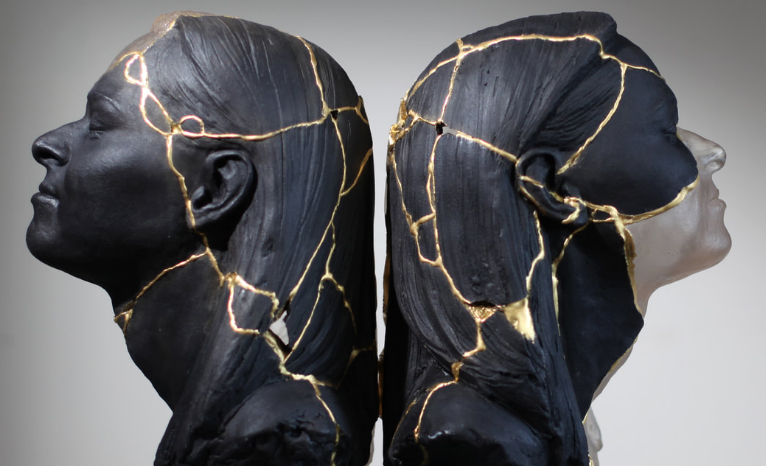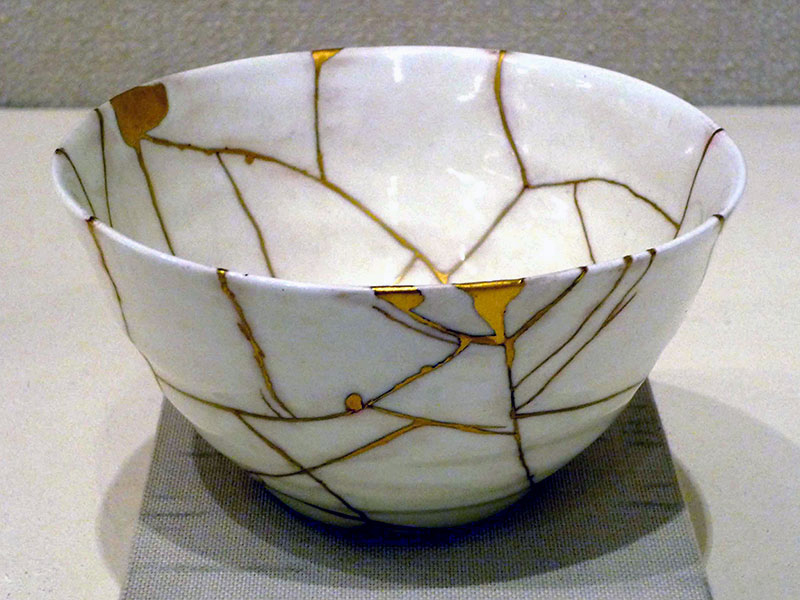December 10: Eternal Peace With God
♫ Music:
Tuesday, December 10
Title: ETERNAL PEACE WITH GOD
Scripture: II Corinthians 5:17-19, Romans 5:1-2
Therefore if anyone is in Christ, he is a new creature; the old things passed away; behold, new things have come. Now all these things are from God, who reconciled us to Himself through Christ and gave us the ministry of reconciliation, namely, that God was in Christ reconciling the world to Himself, not counting their trespasses against them, and He has committed to us the word of reconciliation.
Having been justified by faith, we have peace with God through our Lord Jesus Christ, through whom also we have obtained our introduction by faith into this grace in which we stand; and we exult in hope of the glory of God.
Poetry:
Late Ripeness
By Czeslaw Milosz
(translated by Robert Hass & Czeslaw Milosz)
Not soon, as late as the approach of my ninetieth year,
I felt a door opening in me and I entered
the clarity of early morning.
One after another my former lives were departing,
like ships, together with their sorrow.
And the countries, cities, gardens, the bays of seas
assigned to my brush came closer,
ready now to be described better than they were before.
I was not separated from people,
grief and pity joined us.
We forget—I kept saying—that we are all children of the King.
For where we come from there is no division
into Yes and No, into is, was, and will be.
We were miserable, we used no more than a hundredth part
of the gift we received for our long journey.
Moments from yesterday and from centuries ago—
a sword blow, the painting of eyelashes before a mirror
of polished metal, a lethal musket shot, a caravel
staving its hull against a reef—they dwell in us,
waiting for a fulfillment.
I knew, always, that I would be a worker in the vineyard,
as are all men and women living at the same time,
whether they are aware of it or not.
GOD OF THE GOLD
Today’s artworks feature the Japanese technique Kintsugi: the repair of broken ceramic with powdered gold. The sculptor Billie Bond works in a dynamic relationship with her materials. Pulling form from clay, she releases her objects to free-fall, shattering where they may. But then, under her patient eye, she reconstructs the object, binding the pieces together with gold lacquer so that the breaking is enfolded into the beauty.
Bond’s work is beautiful. And one feature of its beauty is that the ceramic bears its own history visually. It is a piece that has been made, unmade, and remade. The ceramic is a story with a beginning, middle, and end, held together as a single, whole object. Take a moment to look at the images of these objects. Hold them in mind as they are juxtaposed with today’s scripture, music, and poetry. As a complete set, these give us scope to prayerfully consider God’s work of reconciliation.
Reconciliation, a work of mediation and peacemaking, follows a prior work of violence. Something has been shattered, unmade, or undone. God’s good creation had hurled itself headlong into destruction, breaking and fracturing family and kin; creation and creator. Groaning for wholeness, the creation waits for its artisan God to come and look with loving gaze, to apply his creative art to restore what we have broken. Under his careful eye and steady hands, the Father will turn each piece about, carefully held for the remaking. And like the broken ceramic, in God’s work of reconciliation, the traces of the break become a source of beauty and strength. The blood of the Son that binds the creation back together shines brightly in the fissure, tracing where once there was wound.
And so it is that God’s reconciliation with us is not a gilding, but a remaking. These breaks that caused us to cry out for wholeness become thin, head-crown halos from which God’s glory shines.
Our lives bear these breaks, but not only these. We bear the breaks of the past, living in a world where shards are our inheritance. God’s work must be cosmic; he must heal the wounds of our whole humanity, these “moments from yesterday and from centuries ago.” They are not discarded pieces, but “dwell within us--waiting for a fulfillment.” The peace of God has been poured out on us, but not only for us. Like Max Richter’s music, God’s hands go forth in steady search, through memory and future, until the pieces are brought back together. And where God joins together, beauty begins to shine. These recovered pieces join the steady song, not as painted-on embellishments but harmonic wholes.
As God continues his slow, patient, and loving work of binding his creation together, let us remember that we, the broken-yet-healed ones, can join in his work. We share the labor by helping find the pieces that are still scattered about, offering them up to God as we find them, entrusting that he will find where the fit is just so, creating a new thin, golden light.
Prayer:
Blessed are the peacemakers, for they will be called children of God.
As your children, Father, teach us the way of peace.
Give us the grace to see that fractures are not final,
And the patience to watch, to wait, and to learn
As you practice your art.
Amen
Chad Glazener
Asst. Director of Recruitment and Marketing
Torrey Honors Institute
Biola University
For more information about the artwork, music, and poetry selected for this day, we have provided resources under the “About” tab located next to the “Devotional” tab.
About the Artwork:
Self Portrait from
The Perfect Imperfection – The Art of Healing Exhibition
Billie Bond
2016
H184 cm x W51 cm x D50 cm
Black stoneware, resin, gold, epoxy, steel
(Private Collection)
Sculptor Billie Bond has brought together a selection of portraiture that has expanded the traditional sense of realistic representation by using a process of destruction and repair to convey the journey of grief and trauma to healing and well-being. Bond’s work, inspired by the ancient Japanese art of Kintsugi, the repair of broken ceramics with gold or silver, embodies a philosophy that broken objects are not something to discard, but instead are given new life through restoration and repair.
About the Artist:
Billie Bond (b. 1965) is a British artist who started work in sculpture after a spinal injury forced her to change career. After completing a degree in 3D Design and Craft at Colchester School of Art, in the UK, Bond went on to do an MA in sculptural practice. Her 20+ years of experience as a designer have included designing furniture, interiors, interior decorating, and painting murals. In 2009, Bond’s sculpture of her sister, who has Down Syndrome, was displayed on the 4th Plinth in Trafalgar Square, London, as part of an exhibition highlighting the importance of art for everyone. Her work is in both private and public collections across the UK.
Artist website: www.billiebondart.com/
About the Music:
“Organum” from the album The Blue Notebooks
About the Composer/Performer:
Max Richter (b. 1966) is a prolific German-born British composer who performs and records his own electronic music and collaborates with countless filmmakers, dancers, vocalists, and media artists. His compositional style is often dubbed “Post-Minimalist” by critics because it is characterized by fewer dynamic changes and less linear formal design than traditional Minimalism while focusing on accessibility.
https://www.maxrichtermusic.com/
About the Poet:
Czeslaw Milosz (1911–2004) was a Polish poet, prose writer, translator, and diplomat. He ranks among the most respected figures in twentieth-century Polish literature, as well as one of the most respected contemporary poets in the world. He was awarded the Nobel Prize for Literature in 1980. Born in Lithuania, where his parents moved to escape the political upheaval in Poland, Milosz left Poland as an adult due to the oppressive Communist regime that came to power following World War II. He lived in the United States from 1960 until his death in 2004. Milosz’ poems, novels, essays, and other works were written in Polish, and translated by the author and others into English. As a witness to the Nazi devastation of Poland and the Soviet takeover of Eastern Europe, Milosz uses his poetry to address the impact of history upon a moral individual and the search for ways to survive spiritual assault.
https://www.poetryfoundation.org/poets/czeslaw-milosz
About the Devotion Writer:
Chad Glazener
Asst. Director of Recruitment & Marketing
Torrey Honors Institute
Biola University
Chad Glazener is a beloved son of God. He is husband to Rachel, father to Madeleine, Lucy, and Henri. He works to write the truth and follow what he finds. Originally from Arizona, Chad Glazener transplanted to California to attend Biola University in 2004 as a Biblical Studies major. Chad is currently the Assistant Director of Recruitment & Marketing for the Torrey Honors Institute.

